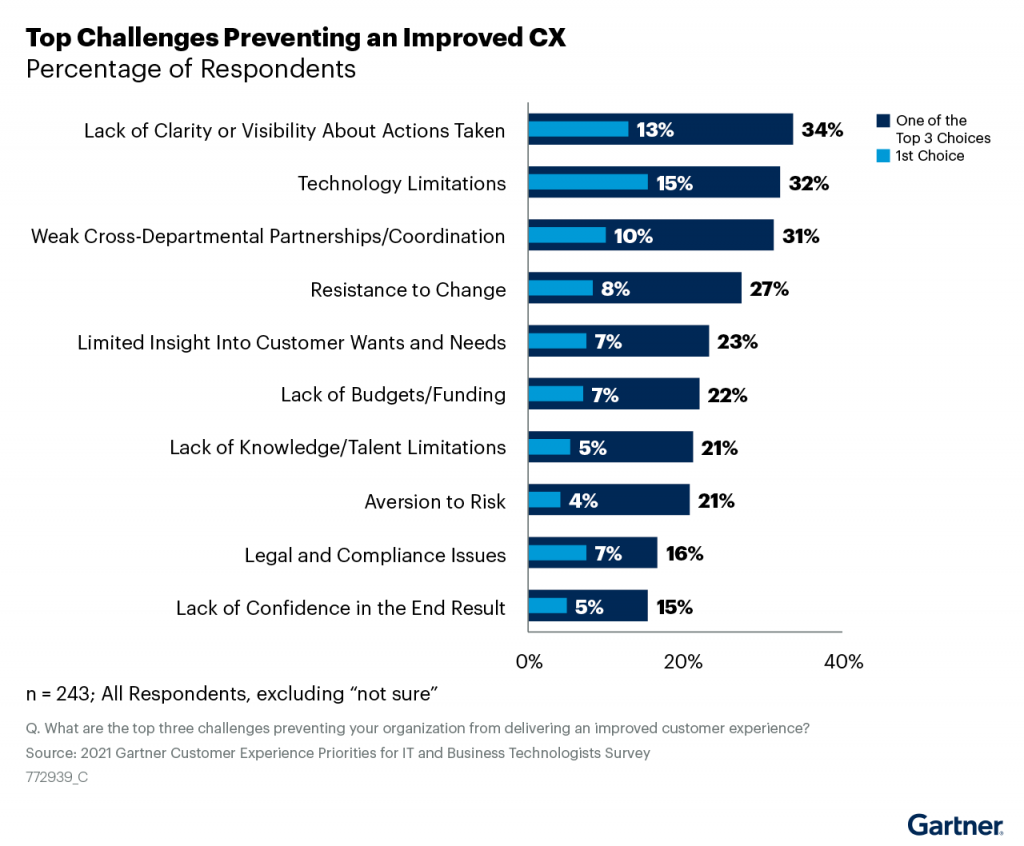“Compelling customer experiences — physical or digital or both — start with compelling customer understanding. When we understand customers well enough, it gives us the ability to connect with them on a deeper level, even in small ways.”
Harvard Business Review
An era that our older generation fondly remembers – waking up early on Sunday mornings to hit the bustling weekly market before the crowd sets in. Nudge their way through the crowd, pick the freshest of vegetables, haggle over the prices, and return home with the week’s supply.
Today, we’ve transitioned into an age where everything is just a click or a tap away. Be it groceries, clothes, utensils, home appliances, medical tests, or banking needs, everything is available to us online at our convenience. Our options are limitless: better quality, better prices, better service—name it and you shall find it at your fingertips.
In the midst of these shifts in trends, businesses juggle with adapting to evolving customer needs. Every attempt is a hit or a miss. What if we told you there is a sure shot way to achieve the ultimate goal – a happy customer?
Your answer? technology!
Bringing tech and support together, embracing digital innovation—self-service solutions to AI chatbots—has become imperative for enhancing the customer experience (CX).
“By 2026, more than 80% of enterprises will have used generative artificial intelligence (GenAI) application programming interfaces (APIs) or models, and/or deployed GenAI-enabled applications in production environments, up from less than 5% in 2023”
Gartner
Maximizing Business Potential with Tech and Support
Customer support has evolved from the confines of phone calls and emails to a dynamic, multi-platform approach to live up to the challenge of speed and efficiency. Armed with AI chatbots and fingertip access to information, the team is prepared to tackle queries. Their reach extends beyond conventional channels to encompass social media and messaging apps, ensuring seamless communication with customers. This embrace of technology amplifies responsiveness and also sets the stage for enhanced customer engagement.
A recent Gartner report identified the top challenges that are preventing an improved CX. Interestingly, many of these challenges can find effective solutions by leveraging technology to support customer service teams.

1. Data Organization: Harnessing Insights for Informed Decision-Making
34% of respondents stated lack of clarity or visibility about actions taken as a challenge preventing improved CX. Businesses have an abundance of customer data available. This presents both a challenge and an opportunity. An efficient customer support team will be able to process vast customer data and offer recommendations that enable faster problem resolution and targeted responses. This is only possible with the help of technology-driven tools such as customer 360 and omnichannel platforms. A study by Aberdeen Group found that companies with strong omnichannel customer engagement strategies retain an average of 89% of their customers, compared to 33% for companies with weak strategies.
These tools enable businesses to centralize and interpret large amounts of data, empowering customer support agents to make informed decisions. It accelerates feedback loop closure by handling customer inquiries and tailoring responses to prospects’ needs.
2. Embracing technology: Enhancing Efficiency and Human Potential
32% of the respondents cited technology limitations as a challenge.
Transitioning beyond apprehensions about robots displacing human jobs, it’s crucial to perceive technology as an asset rather than a threat. By harnessing its potential, support agents can become more efficient.
For example, tracking repetitive queries allows for the implementation of self-serve portals or AI-powered chat channels. This will free up agents to focus on complex issues requiring human intervention. Moreover, GenAI empowers virtual assistants to engage customers effectively, enhancing productivity for service reps. In the digital age, technology not only reduces operational costs but also streamlines processes like inventory management and customer service, enabling agents to work more efficiently. Cloud-based solutions further make technology adoption a cost-effective choice for businesses of all sizes.
3. Optimizing Cross-Departmental Collaboration with Ticketing Systems
Weak cross-departmental partnerships and coordination, which was brought up as an issue by 31% respondents. A ticket management system and an internal ticketing system can be your go-to fix.
A ticket management system streamlines the handling of customer inquiries and concerns by automating various aspects of ticket management. This involves automatically assigning, prioritizing, tracking, and resolving tickets based on factors like Customer Lifetime Value (CLV) and ticket type across various channels such as website, social media, email, and calls. This can greatly influence customer support effectiveness.
An Internal Ticketing System (ITS) on the other hand, streamlines internal communication and task management by automating the handling of internal requests and inquiries.
To tackle the lack of knowledge and talent management which was raised as an issue by 21% of respondents, implementing a Knowledge Management System (KMS) and a Learning Management System (LMS) can provide the necessary tools. These systems will empower support agents with the information and skills needed to effectively address customer queries and concerns.
By automating these processes, you can save valuable time and allow your customer support agents to focus on more complex and high-value interactions.
4. Personalization: Crafting Personalized Experiences with Tech & Support
A survey by Accenture found that 75% of consumers are more likely to make a purchase from a company that recognizes them by name, recommends options based on past purchases, or knows their purchase history.
One of the key advantages of technology in modern business is the ability to personalize customer experiences. Through data analytics and AI-driven algorithms, businesses can gather insights into consumer preferences, behaviors, and demographics. This allows for targeted marketing campaigns, customized product recommendations, and personalized communication, ultimately enhancing customer satisfaction and loyalty. Hence, solving the issue of limited insights into customer wants and needs, raised as a concern by 23% of the respondents.
Conclusion
Wrapping up our exploration of tech and support, it’s evident that innovation is more than just a buzzword—it’s a necessity for businesses navigating the digital landscape. From debunking fears of job displacement to unlocking the potential of AI-driven solutions, technology emerges as the ultimate solution in the quest for seamless customer experiences.
As organizations embrace this digital frontier, they pave the way for enhanced collaboration, personalized interactions, and unparalleled efficiency. Beyond mere convenience, technology becomes the cornerstone of a thriving ecosystem where businesses not only save time and money but also forge deeper connections with their customers, propelling them toward sustained success in the ever-evolving marketplace.








